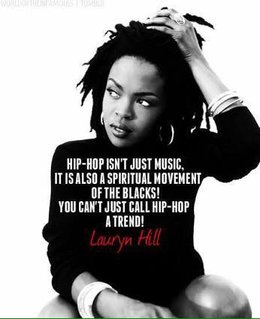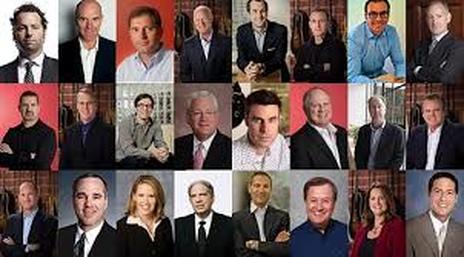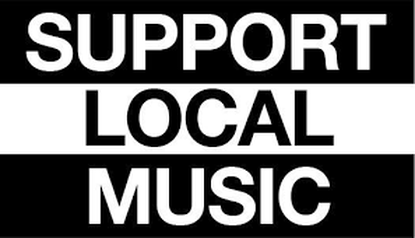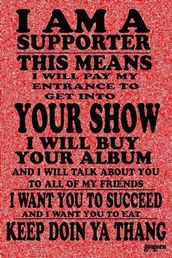The Commodification of Revolutionary Black music genres
|
|
|
BLACK RHYTHM, WHITE POWER
Blues led to the rise of Rock N Roll, Jazz inspired generations of electronic DJs, and Hip-hop transformed the entire landscape of modern pop music. So why, when the influence of Black artists on music is so massive, are there hardly any powerful Black executives in the modern music industry?
Pandora, Live Nation, Apple, Spotify, AEG, Warner Music Group, SXSW, Clear Channel Communications, and Universal Music Group are all dominated by white executives, often from privileged backgrounds and educations
And it is far worse on the technology and live concert side, i.e., the biggest growth of this industry
I could not find ONE Black executive from Pandora, Live Nation, Apple, Spotify, AEG, or SXSW, just to pluck from the above list. That doesn’t mean they don’t exist, but for the most part, they are not in prominent, influential positions at these companies. And, sadly, there’s a distinct possibility there aren’t any Black executives on the payrolls at many of these enterprises. Even Jay-Z's new music service, Tidal, is being critcized for staffing an almost completely white office. Only a handful of Black execuives are making it.
The power disparity between whites and blacks in the music industry suggests that music is another tool the mainstream uses to perpetuate black marginalization.
Appreciation of Black music goes hand in hand with appreciation of Black people, however mainstream America tends to depreciate blackness. The crime then is the bigotry that led to and perpetuates their commoditization. There is still a big problem - in the music industry, in music technology, and America at large.
Pandora, Live Nation, Apple, Spotify, AEG, Warner Music Group, SXSW, Clear Channel Communications, and Universal Music Group are all dominated by white executives, often from privileged backgrounds and educations
And it is far worse on the technology and live concert side, i.e., the biggest growth of this industry
I could not find ONE Black executive from Pandora, Live Nation, Apple, Spotify, AEG, or SXSW, just to pluck from the above list. That doesn’t mean they don’t exist, but for the most part, they are not in prominent, influential positions at these companies. And, sadly, there’s a distinct possibility there aren’t any Black executives on the payrolls at many of these enterprises. Even Jay-Z's new music service, Tidal, is being critcized for staffing an almost completely white office. Only a handful of Black execuives are making it.
The power disparity between whites and blacks in the music industry suggests that music is another tool the mainstream uses to perpetuate black marginalization.
Appreciation of Black music goes hand in hand with appreciation of Black people, however mainstream America tends to depreciate blackness. The crime then is the bigotry that led to and perpetuates their commoditization. There is still a big problem - in the music industry, in music technology, and America at large.
Live nation board of executives
it's bigger than hip-hop

From the 1970s through 2016, Hip-hop has grown in power and influence and now sits as the most consumed genre of today's generation. But how do we balance consuming Hip hop culture when it has faced whitewashing, commodification, and criminalization? To try to understand the social, cultural, political, and economic implications of this, we must address the fact that white culture is responsible for aggravating, reproducing and maintaining the systemic conditions of oppression that early hip-hop artists were speaking out against.
Rap is revolutionary as a black musical form. Prior to commercialization, African-American owners, programmers, and DJs had the freedom to use their stations to serve the specific needs of their listeners - New York's working-class African-American community. Socially conscious hip hop music was at the height of distribution in the 1980s, when legendary acts like Public Enemy and Boogie Down Productions were discussing everything from the prison industrial complex to the hypocrisy of the war on drugs in their songs.
By the early 1990s, hip-hop broke into the mainstream, or rather the mainstream broke into hip-hop. When white-owned corporate record labels started signing hip-hop artists, Rap music was stolen from its community, repackaged by money-minded businesspeople looking to create a wider appeal by erasing hip-hop's historic function. Mainstream attention to hip-hop saw the political nature of groups like Public Enemy diffuse. It didn't take long until advertisers latched onto the music's youthful / party appeal, popularizing more party-oriented songs and styles like Young MC's Bust a Move, Biz Markie's Just a Friend, and Tone Loc's Wild Thang, promoting a certain kind of hip-hop that appeals largely to young white audiences.
Rap is revolutionary as a black musical form. Prior to commercialization, African-American owners, programmers, and DJs had the freedom to use their stations to serve the specific needs of their listeners - New York's working-class African-American community. Socially conscious hip hop music was at the height of distribution in the 1980s, when legendary acts like Public Enemy and Boogie Down Productions were discussing everything from the prison industrial complex to the hypocrisy of the war on drugs in their songs.
By the early 1990s, hip-hop broke into the mainstream, or rather the mainstream broke into hip-hop. When white-owned corporate record labels started signing hip-hop artists, Rap music was stolen from its community, repackaged by money-minded businesspeople looking to create a wider appeal by erasing hip-hop's historic function. Mainstream attention to hip-hop saw the political nature of groups like Public Enemy diffuse. It didn't take long until advertisers latched onto the music's youthful / party appeal, popularizing more party-oriented songs and styles like Young MC's Bust a Move, Biz Markie's Just a Friend, and Tone Loc's Wild Thang, promoting a certain kind of hip-hop that appeals largely to young white audiences.
Today, market studies estimate that 60% of the population that consumes hip-hop is white. Now, white culture must address how the use of hip-hop music and aesthetics turns hip-hop culture into a commodity. What happens to its origins as a voice for a culture of struggle? When a cultural expression becomes something to be bought and sold - when its money-making potential is first and foremost what matters to the industry heads responsible for making music popular to the masses - labels want to take less risks in order to maximize profit. In 2007, Lupe Fiasco released a song titled “Dumb It Down” angered by the demands of his major music label:
"You going over niggas heads, lu (dumb it down)
They telling me that they don't feel you (dumb it down)
We ain't graduate from school, ni**a (dumb it down)
Them big words ain't cool, nI**a (dumb it down)
Yeah I heard "mean and vicious", ni**a (dumb it down)
Make a song for the bitches, ni**a! (dumb it down)
We don't care about the weather ni**a (dumb it down)
You'll sell more records if you (dumb it down)"
Despite these industry constraints, POLITICIZED HIP-HOP - hip-hop artists that remain politicized by existing social, cultural, economic, racial, and gender inequalities - has ALWAYS been produced; we just stopped hearing it on the radio for a period of time. Today, black artists are occupied balancing the fact that they are making healing / celebratory music for the black community but white people will continue to consume it. In order to preserve hip-hop's cultural function and, simultaneously, to promote artistic and commercial progress, the black community that has traditionally been the ones making the music should be the ones that control its production and distribution. This is obvious, but until then, it is up to YOUTH CULTURE to actively seek out non-white narratives - we must support alternative means of distribution and ownership which creates financial avenues for communities marginalized by the mainstream. We must all raise our consciousness. In doing so, we can all begin to live collectively, and collectively be heard.



